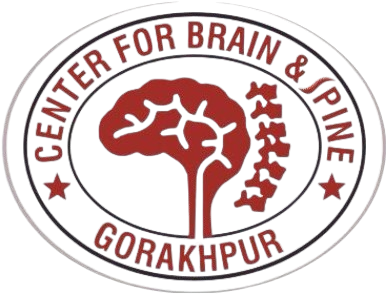Peripheral neuropathy refers to a group of disorders that affect the peripheral nerves, which are the nerves outside the brain and spinal cord. These nerves are responsible for transmitting information between the central nervous system (CNS) and the rest of the body, including the limbs, organs, and tissues. When these nerves are damaged, it can lead to a variety of symptoms and functional impairments.
Causes of Peripheral Neuropathy
Peripheral neuropathy can be caused by a wide range of conditions and factors, including:
Diabetes:
- Description: Diabetic neuropathy is one of the most common types, caused by long-term high blood sugar levels damaging the peripheral nerves.
- Symptoms: Tingling, numbness, pain, and weakness, typically starting in the feet and hands.
Autoimmune Diseases:
- Examples: Rheumatoid arthritis, lupus, or Guillain-Barré syndrome.
- Symptoms: Vary depending on the condition but may include pain, weakness, or sensory changes.
Infections:
- Examples: Shingles (herpes zoster), HIV/AIDS, Lyme disease.
- Symptoms: Pain, burning, or tingling in affected areas.
Trauma or Injury:
- Description: Physical injury to nerves from accidents, repetitive strain, or surgical procedures.
- Symptoms: Pain, numbness, or weakness in the affected area.
Nutritional Deficiencies:
- Examples: Vitamin B12 deficiency, which is crucial for nerve health.
- Symptoms: Tingling, numbness, and weakness.
Toxins:
- Examples: Exposure to heavy metals (e.g., lead, mercury) or certain medications (e.g., chemotherapy drugs).
- Symptoms: Pain, numbness, and motor or sensory dysfunction.
Inherited Disorders:
- Examples: Charcot-Marie-Tooth disease, a genetic disorder that affects peripheral nerves.
- Symptoms: Progressive weakness and muscle atrophy.
Chronic Kidney Disease:
- Description: Kidney dysfunction can lead to the accumulation of toxins that affect nerve function.
- Symptoms: Pain, burning sensations, and numbness.
Alcoholism:
- Description: Chronic alcohol abuse can lead to nutritional deficiencies and direct nerve damage.
- Symptoms: Tingling, numbness, and weakness.
Symptoms of Peripheral Neuropathy
Symptoms can vary depending on the type of nerves affected (sensory, motor, or autonomic), but common symptoms include:
Sensory Nerves:
- Tingling or “Pins and Needles”: Often described as a prickling or burning sensation.
- Numbness: Loss of feeling or sensitivity in the affected area.
- Pain: Burning, stabbing, or shooting pain.
- Sensitivity Changes: Increased sensitivity to touch or temperature changes.
Motor Nerves:
- Weakness: Difficulty in moving or controlling the muscles, leading to clumsiness or difficulty with fine motor tasks.
- Muscle Atrophy: Wasting away of muscle tissue due to lack of use or nerve stimulation.
Autonomic Nerves:
- Digestive Issues: Nausea, diarrhea, constipation, or difficulty swallowing.
- Cardiovascular Problems: Abnormal blood pressure or heart rate changes.
- Sweating Abnormalities: Reduced or excessive sweating.
Diagnosis
Diagnosing peripheral neuropathy typically involves:
- Medical History: Discussion of symptoms, medical conditions, lifestyle factors, and potential exposures to toxins.
- Physical Examination: Assessment of muscle strength, reflexes, and sensory functions.
- Nerve Conduction Studies: Tests that measure the speed and strength of nerve signals.
- Electromyography (EMG): Measures electrical activity in muscles to assess nerve and muscle function.
- Blood Tests: To check for underlying conditions such as diabetes, vitamin deficiencies, or infections.
- Imaging Studies: MRI or CT scans may be used to identify structural issues affecting nerves.
Treatment
Treatment for peripheral neuropathy focuses on addressing the underlying cause and managing symptoms:
Managing Underlying Conditions:
- Diabetes: Tight blood sugar control through medications, diet, and lifestyle changes.
- Autoimmune Diseases: Immunosuppressive drugs or other targeted therapies.
- Nutritional Deficiencies: Supplementation with vitamins or minerals as needed.
Medications:
- Pain Relievers: Over-the-counter or prescription medications to manage pain and discomfort.
- Antidepressants: Certain types can help with neuropathic pain.
- Anti-Seizure Medications: Used to manage nerve pain.
- Topical Treatments: Creams or patches applied to the skin to relieve pain.
Physical Therapy:
- Rehabilitation: Exercises to improve strength, balance, and coordination.
- Assistive Devices: Braces or other aids to support mobility and function.
Lifestyle Changes:
- Diet and Nutrition: Ensuring a balanced diet to prevent deficiencies and support nerve health.
- Avoiding Toxins: Reducing exposure to harmful substances and moderating alcohol intake.
Alternative Therapies:
- Acupuncture: May help alleviate pain and improve function.
- Massage Therapy: Can reduce muscle tension and improve circulation.
Surgical Intervention:
- Nerve Repair: In cases where physical nerve damage is identified, surgical repair or decompression may be considered.
Prevention
Preventive measures include:
- Healthy Lifestyle: Maintaining a balanced diet, regular exercise, and avoiding excessive alcohol consumption.
- Managing Chronic Conditions: Keeping conditions like diabetes or kidney disease under control.
- Protecting Nerves: Using proper safety equipment and avoiding repetitive strain injuries.
Conclusion
Peripheral neuropathy is a diverse condition with many potential causes and symptoms. Effective management involves addressing the underlying cause, relieving symptoms, and improving quality of life through a combination of medical treatments, lifestyle adjustments, and supportive therapies. If you experience symptoms of peripheral neuropathy, consulting a healthcare provider is essential for accurate diagnosis and personalized treatment.

